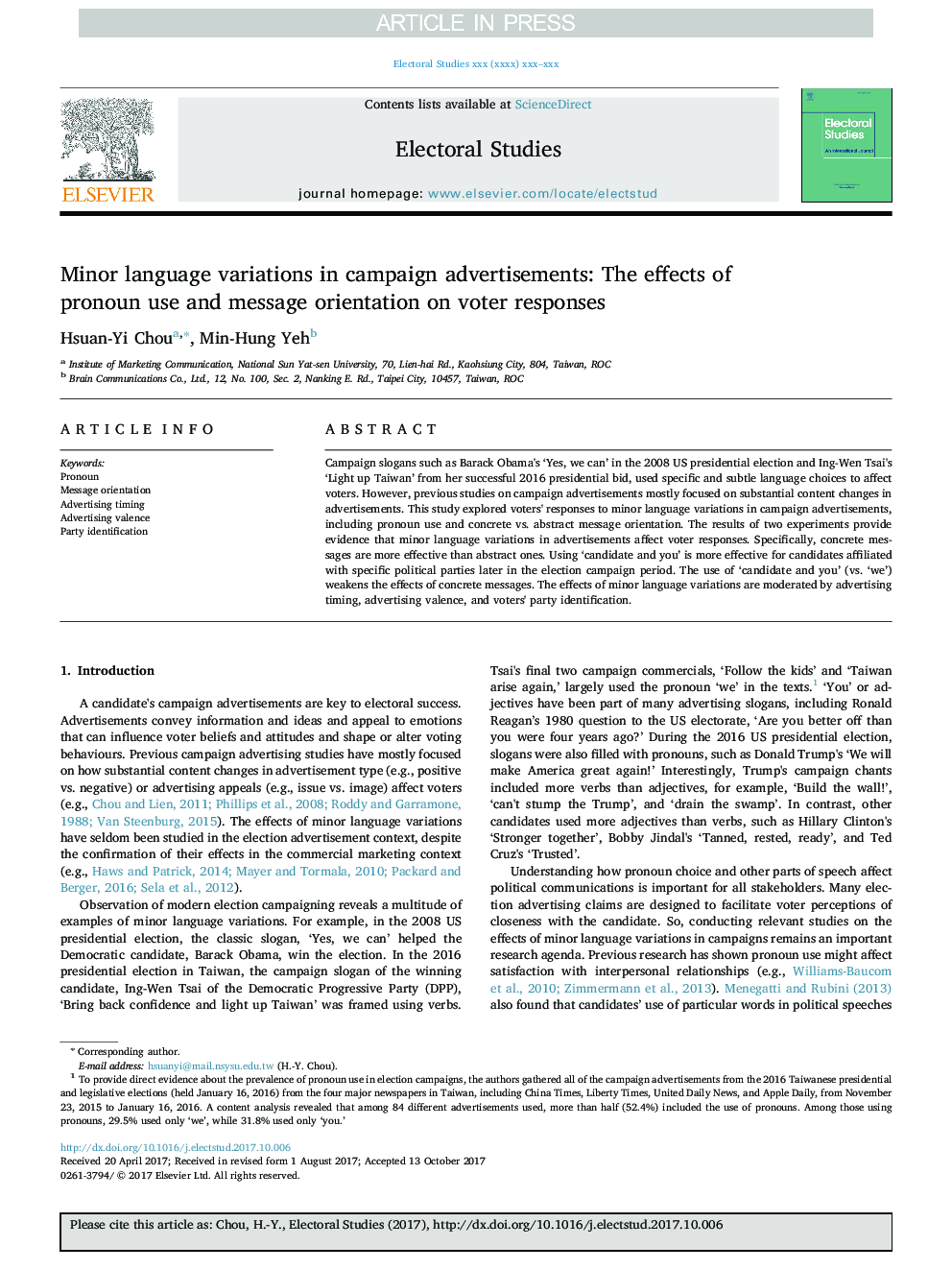| Article ID | Journal | Published Year | Pages | File Type |
|---|---|---|---|---|
| 7463334 | Electoral Studies | 2018 | 14 Pages |
Abstract
Campaign slogans such as Barack Obama's 'Yes, we can' in the 2008 US presidential election and Ing-Wen Tsai's 'Light up Taiwan' from her successful 2016 presidential bid, used specific and subtle language choices to affect voters. However, previous studies on campaign advertisements mostly focused on substantial content changes in advertisements. This study explored voters' responses to minor language variations in campaign advertisements, including pronoun use and concrete vs. abstract message orientation. The results of two experiments provide evidence that minor language variations in advertisements affect voter responses. Specifically, concrete messages are more effective than abstract ones. Using 'candidate and you' is more effective for candidates affiliated with specific political parties later in the election campaign period. The use of 'candidate and you' (vs. 'we') weakens the effects of concrete messages. The effects of minor language variations are moderated by advertising timing, advertising valence, and voters' party identification.
Keywords
Related Topics
Social Sciences and Humanities
Social Sciences
Geography, Planning and Development
Authors
Hsuan-Yi Chou, Min-Hung Yeh,
